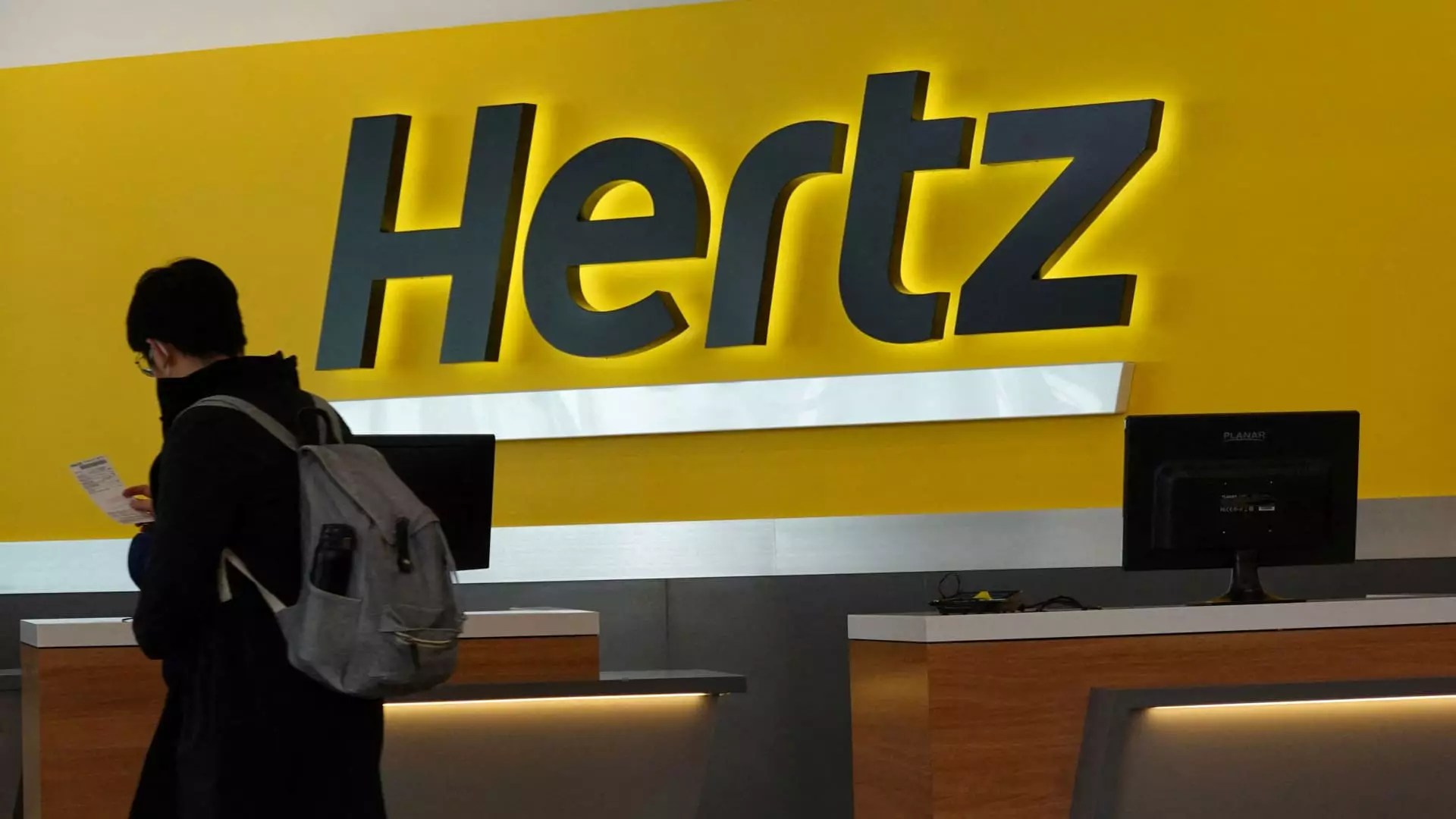The turbulent world of corporate earnings can sometimes feel like a high-stakes game of roulette, and unfortunately for Hertz Global Holdings, luck was not on their side this past Tuesday. The company’s stock took a nosedive of over 20% after the release of its first-quarter earnings report, which sent alarm bells ringing for investors. The anticipated losses and a rather bleak outlook laid bare the vulnerabilities of this once-stalwart rental car giant. While some may argue that temporary setbacks are part of doing business, the reality is that Hertz’s declining fortunes signal a more profound issue that cannot be ignored.
The reported loss per share of $1.12, significantly worse than the expected loss of $0.97, highlighted the disarray within the company. Automotive revenues fell to $1.81 billion, sharply below the $2 billion analysts had predicted. These figures do not simply suggest mismanagement but indicate a disturbing trend in the broader rental car market—a sector often seen as a bellwether for consumer confidence.
The Stock Offering: A Double-Edged Sword
Hertz’s announcement of a $250 million stock offering during its earnings call was an attempt to mitigate its rising debt. Dressed up as a strategic measure to address maturity financial troubles, this move can also be interpreted as an act of desperation. CFO Scott Haralson’s comments about having multiple options for addressing debt issues were overshadowed by the very real implications of issuing new shares, which typically dilutes existing shareholder value. The knee-jerk reaction of investors reflected their loss of faith amid rising uncertainty, contributing further to the stock’s plummet.
This $250 million stock offering is not just a financial maneuver; it is a glaring indicator that Hertz is grappling with a debilitating debt burden. The phrase “deleveraging” may sound like finance lingo designed to appease stockholders, but the underlying truth is that Hertz needs to urgently patch up its balance sheet, which has seen better days. At what point does the issuance of new stock become a red flag rather than a beacon of hope?
Tumultuous Times Ahead: Economic Strain and Consumer Sentiment
Compounding Hertz’s woes is the broader economic landscape as influential factors like President Trump’s auto tariffs drive up vehicle prices and lead to declining consumer sentiment in the car rental market. The company’s decision to reduce vehicle availability, ostensibly to optimize utilization, underscores a strategic retreat in the face of waning demand. The paradox here is striking: in a bid to create “more demand than we can satisfy,” Hertz seems to be playing a dangerous game by not providing enough vehicles to meet existing consumer interest.
CEO Gil West’s assertion that the company prioritized fleet and cost actions is alarming. While minimizing expenses and fleet size may provide short-term relief, it directly contradicts the goal of fostering a healthy revenue stream. Choosing to prune revenue efforts rather than seeking growth opportunities sends a worrying signal that Hertz isn’t poised for a sustainable recovery.
Future Outlook: Hope Amidst the Gloom?
Despite these glaring weaknesses, Hertz isn’t entirely devoid of hope. The company has touted improvements in operational efficiencies and has even achieved record vehicle sales. However, the critical question remains: Will these glimmers of success be enough to buoy the company through an increasingly challenging landscape? Analysts like Barclays’ Dan Levy firmly believe that the risks far outweigh the positives, signaling a bearish outlook.
As the rental car industry has entered a phase of recalibration following the pandemic, it begs the question—can Hertz adapt fast enough to turn the tide? Their plan, aimed at transforming revenue dynamics and returning to profitability, hinges on whether they can navigate a landscape fraught with economic uncertainty and fluctuating consumer demands.
While Hertz’s leadership boasts about milestones and recovery strategies, the unfolding reality suggests that the road ahead will be paved with challenges that require more than just superficial adjustments. The once-proud rental car giant must face the harsh truth: Unless it fundamentally rethinks its approach to fleet management and consumer engagement, it risks being relegated to the annals of corporate history—a cautionary tale of a giant that couldn’t keep pace with a rapidly evolving landscape.


Leave a Reply